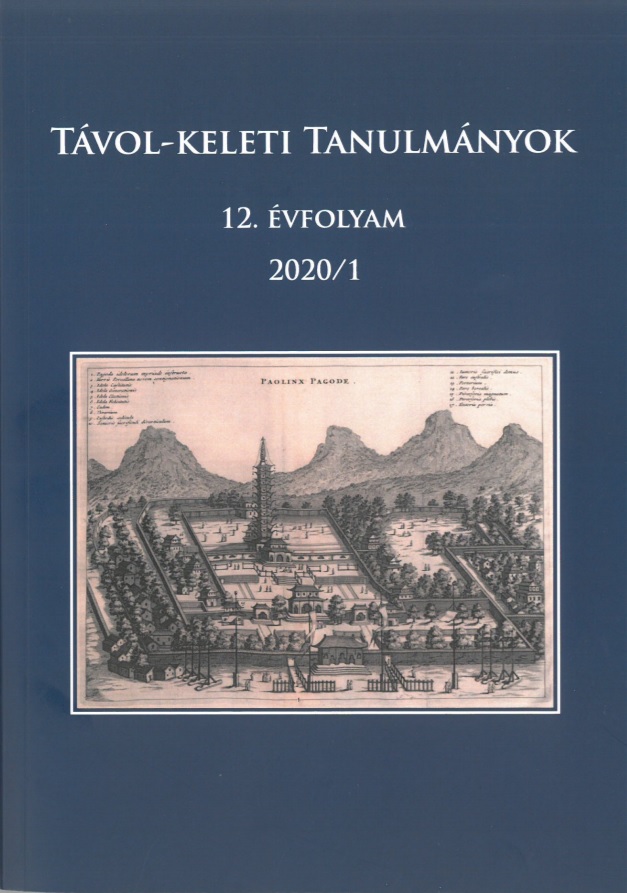Environmental policy discourse in the reports of the General Secretary presented at the National Congresses of the Chinese Communist Party
Published 2021-02-25
Keywords
- environmental policy,
- Chinese Communist Party,
- National Party Congress,
- environmental protection,
- Jiang Zemin
- Hu Jintao,
- Xi Jinping ...More
How to Cite
Copyright (c) 2021 the author(s)

This work is licensed under a Creative Commons Attribution-NonCommercial 4.0 International License.
Abstract
Effective environmental protection, although individual involvement is essential, requires a government-level strategy and a complex set of tools. This professionally grounded, change-oriented, nationwide long-term policy, surrounded by conscious decisions, is called environmental policy. The larger a country, the greater the global weight of its domestic environmental policy. China is the most populous country in the world, with the second highest nominal GDP, and the third highest in terms of territory. There are few states whose domestic environmental policies would be as decisive for the future of humanity as those of China. Our world is also greatly influenced by the international role of the Chinese in environmental protection. The willingness and extent of this is explored in the present study in the reports of the General Secretary presented at the National Congresses of the Chinese Communist Party (CCP). The paper does not analyse China’s environmental policy but describes how this area appears in the reports of the CCP General Secretary every five years.
References
- /13. kongresszus: http://cpc.people.com.cn/GB/64162/64168/64566/65447/4526368.html
- /14. kongresszus: http://news.ifeng.com/mainland/special/zhonggong18da/content-/4/detail_2012_11/04/18821874_0.shtml
- /15. kongresszus: http://news.ifeng.com/mainland/special/zhonggong18da/content-4/detail_2012_11/04/18821363_0.shtml
- /16. kongresszus: http://www.dzwww.com/xinwen/xinwenzhuanti/qzsldzk/xwzx/200211210945.htm
- /17. kongresszus: http://www.huaxia.com/zt/tbgz/07-082/523727.html
- /18. kongresszus: http://news.china.com.cn/politics/2012-11/20/content_27165856.htm
- /19. kongresszus: http://www.xinhuanet.com/politics/19cpcnc/2017-10/27/c_1121867529.htm
- /11. ötéves terv. https://www.ndrc.gov.cn/xwdt/gdzt/ghjd/quanwen/201402/t20140219_1201612.html (utolsó letöltés: 2020.10.19.)
- /12. ötéves terv környezetvédelmi vonatkozása. http://www.cn-hw.net/html/sort056/201201/31655.html (utolsó letöltés: 2020.10.19.)
- /13. ötéves terv. http://www.12371.cn/special/sswgh/wen/#10 (utolsó letöltés: 2020.10.19.)
- A Kínai Kommunista Párt alkotmánya. http://www.qstheory.cn/llqikan/2017-12/03/c_1122049483.htm (2020.10.19.)
- A Kínai Népköztársaság Alkotmánya. http://www.gov.cn/govweb/test/2005-06/14/content_6310.htm (2020.10.19.)
- Bradbury, Ian – Kirkby, Richard 1996. „China’s Agenda 21 A critique.” Applied Geography16/2: 97–107.
- Cao Huijuan – Hidemichi Fuji – Shunsuke Managi 2013. „Environmental Impact of the 2008 Beijing Olympic Games.” Economics Discussion Papers 2013–30. http://www.economics-ejournal.org/economics/discussionpapers/2013-30/file. (utolsó letöltés: 2020.10.19.)
- Han Rongliang 2002. „China to Invest 700 Billion-yuan for Improving Urban & Rural Environment.” People’s Daily. http://en.people.cn/200201/31/eng20020131_89701.shtml (2020.10.19.)
- Institute for Security & Development Policy. https://isdp.eu/publication/nccpc-national-congress-communist-party/ (2020.10.19.)
- Jordán Gyula 2015. A Kínai Népköztársaság alkotmányainak történeti áttekintése. In: Salát Gergely (szerk.): A kínai alkotmány. Budapest: Typotex Kiadó, 33.
- Ker, Michelle – Logan, Kate 2014. „New environmental law targets China’s local officials.” https://chinadialogue.net/en/pollution/6939-new-environmental-law-targets-china-s-local-officials/ (ó 2020.10.19.)
- Kusai Sándor Zoltán 2020. „Kína az ökológiai makadámúton.” In: Salát Gergely et. al. (szerk.): Mesterséges természetesség. Környezetkárosítás és természetvédelem Ázsiában. Budapest: Typotex Kiadó: 11–29.
- Liu Jianqiang 2014. „China’s new environmental law looks good on paper.” China Dialogue. https://www.chinadialogue.net/blog/6937-China-s-new-environmental-law-looks-good-on-paper/en (2020.10.19.)
- Miller, Alice 2012. „The Road to the 18th Party Congress.” China Leadership Monitor 36: 1–7.
- Moore, Malcolm 2011. „China is the world's second largest economy.” Telegraph. https://www.telegraph.co.uk/finance/economics/8322550/China-is-the-worlds-second-largest-economy.html (ó 2020.10.19.)
- The Poeple’s Republic of China National Report on Sustainable Development. http://download.china.cn/en/pdf/development2.pdf (2020.10.19.)
- Világbank adatai https://data.worldbank.org/indicator/NY.GDP.MKTP.CD?most_recent_value_desc=true (2020.10.19.)
- Wang, Alex 2007. „The Role of Law in Environmental Protection in China: Recent Developments.” UCLA School of Law. Public Law & Legal Theory Research Paper Series. Research Paper No. 06-46. 8 Vermont Journal of Environmental Law 195: 195–223.
- Wang, Lijun 2010. „The changes of China’s environmental policies in the latest 30 years.” Procedia Environmental Sciences 2: 1206–1212.
- World Trade Organisation [álláspont a kereskedelem és a környezet kapcsolatáról]. https://www.wto.org/english/tratop_e/envir_e/envir_e.htm (2020.10.19.)
- Zhang Kunmin – Wen Zongguo – Peng Liying 2007. „Environmental Policies in China: Evolvement, Features and Evalutation.” China Population, Resources and Environment Volume 17, Issue 2, March. 1–7.
- Zhang Kunmin – Wen Zongguo – Peng Liying 2008. „Review on environmental policies in China: Evolvement, features, and evaluation.” Front. Environ. Sci. Eng. China 2: 129–141.
- Zhang Kunmin – Wen Zongguo 2008. „Review and challenges of policies of environmental protection and sustainable development in China.” Journal of Environmental Management 88: 1249–1261.

